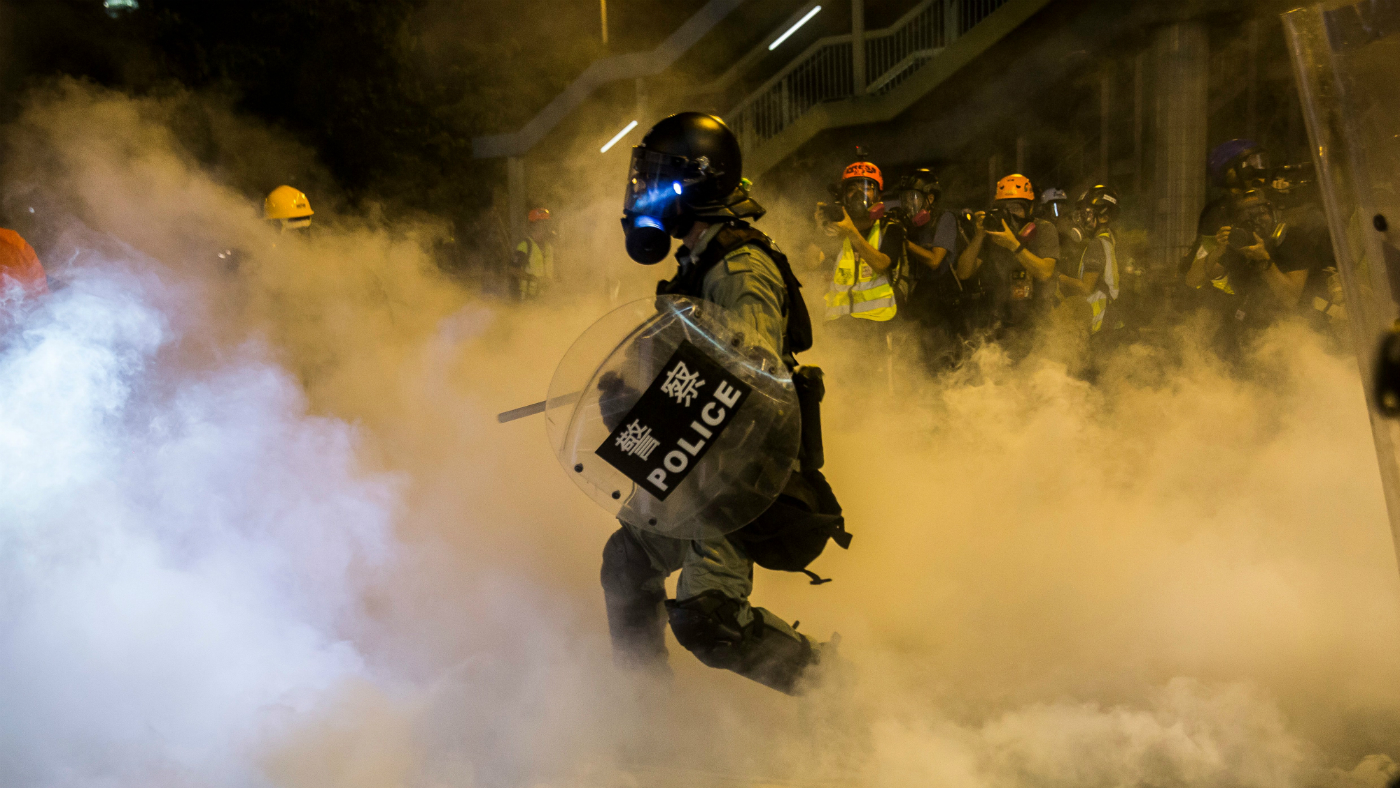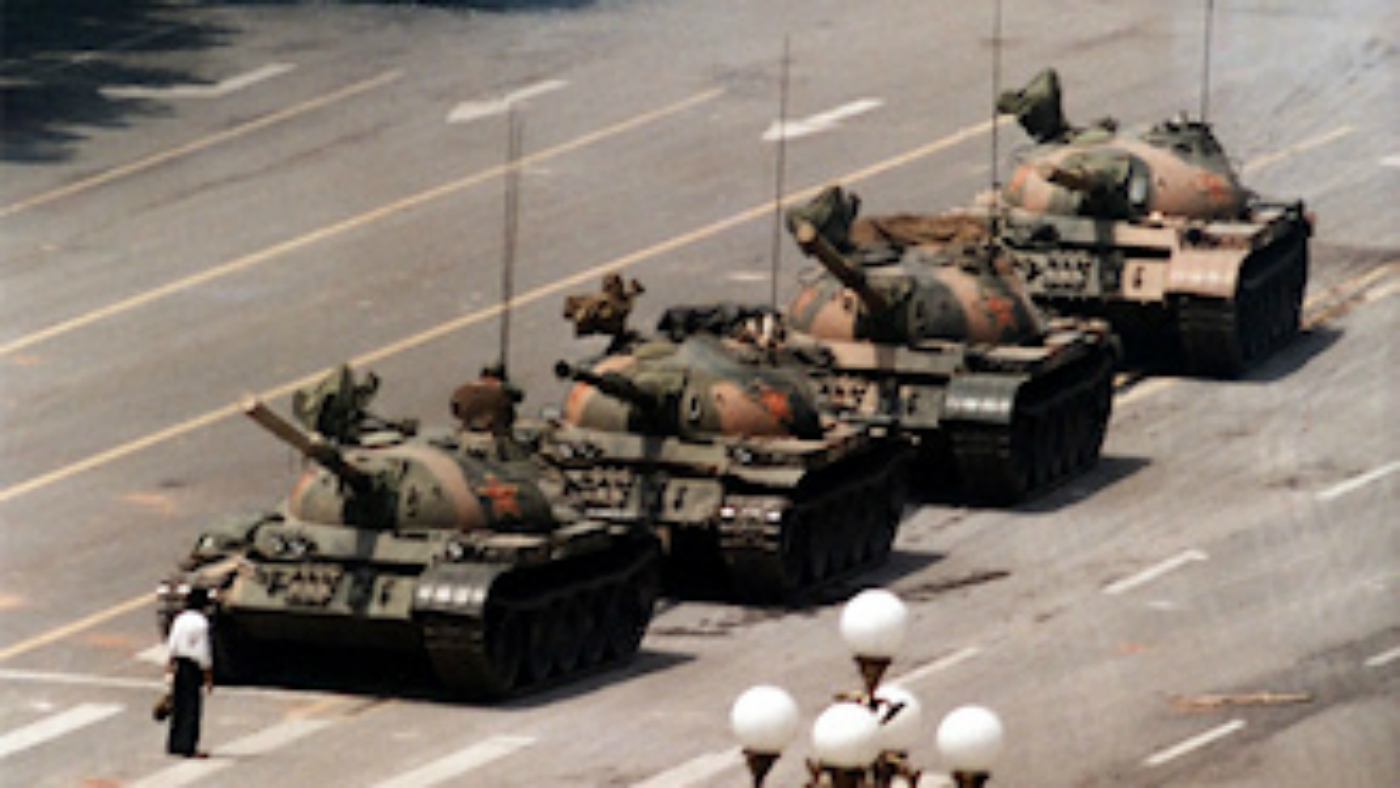The largest protests in history
Hong Kong’s anti-government demonstrations are among the largest ever seen

A free daily email with the biggest news stories of the day – and the best features from TheWeek.com
You are now subscribed
Your newsletter sign-up was successful
The recent demonstrations in Hong Kong have seen an estimated two million people taking to the streets in the largest protests in the territory’s history.
The protests were sparked by a bill that would allow people to be extradited from Hong Kong to mainland China more easily, undermining the “one country, two systems” principle that has applied to the territory since its 1997 handover from the UK to China.
Though the bill has since been suspended, protests have grown partly in response to the government’s and police’s response. Demonstrations have now “morphed into a broader movement demanding democratic reform and an investigation into alleged police brutality”, says the BBC.
The Week
Escape your echo chamber. Get the facts behind the news, plus analysis from multiple perspectives.

Sign up for The Week's Free Newsletters
From our morning news briefing to a weekly Good News Newsletter, get the best of The Week delivered directly to your inbox.
From our morning news briefing to a weekly Good News Newsletter, get the best of The Week delivered directly to your inbox.
Jimmy Sham, from the Civil Human Rights Front (CHRF) protest group, told reporters in June: “Today’s march we had almost two million people.”
And on Sunday, a reported 1.7 million people turned out for a pro-democracy protest, in defiance of recent warnings by Beijing.
Protest organisers CHRF were not given authorisation for a march, but police allowed a peaceful demonstration in the city’s Victoria Park.
One of the demonstrators, named as Mr Wong, told the BBC’s Lam Cho Wai at the protest: “We have been fighting for more than two months, but our government has no response at all. We could just come out again and again.”
A free daily email with the biggest news stories of the day – and the best features from TheWeek.com
Here, The Week explores how the scale of the Hong Kong protests compares to previous demonstrations around the world.
On 15 February 2003, coordinated protests against the imminent Iraq war took place across 60 countries in what social researchers called “the largest protest event in human history”.
The city with the highest concentration of protesters was Rome, where an estimated three million people took to the streets to rally against the invasion of Iraq, reports The Guardian. The Guinness World Records book of 2004 cites the Rome protest as the biggest anti-war rally in history.
The anti-war protest in London was the biggest ever demonstration in the UK, according to police. Most estimates put the number of marchers in the capital at around a million.
–––––––––––––––––––––––––––––––For a concise, refreshing and balanced take on the news agenda, delivered to your inbox, sign up to the WeekDay newsletter–––––––––––––––––––––––––––––––
Tiananmen Square
Many commentators have warned that the demonstrations in Hong Kong could lead to a “Tiananmen Square” style crackdown against protesters.
Thirty years ago, student-led protests demanding greater political freedom took place in Beijing’s Tiananmen Square. The number of protesters rose to one million at its peak, says the BBC. The Chinese government declared martial law in Beijing and on 3 June troops began to move towards the square, shooting at and crushing protesters.
The event produced one of the most recognisable photos in history - a Chinese man facing down a row of tanks heading away from the square.

Salt March
The Salt March was an act of civil disobedience led by Mohandas “Mahatma” Gandhi against British rule in India. He believed that Indians could gain their independence from Britain through non-violent protest.
The Indian population was banned from producing or selling salt, says Encyclopaedia Britannica, and instead had to buy expensive, heavily-taxed salt that was often out of the reach of ordinary Indians.
Gandhi led a 240-mile march from his religious retreat in Gujarat to the town of Dandi on the Arabian Sea coast. He started off with just a few dozen followers, but by the end of the march - which sparked civil disobedience across the whole of India - millions had joined his cause and 60,000 people had been jailed.
SOPA strike
On 18 January 2012, large parts of the internet went dark in response to two controversial proposed laws in the US - the Stop Online Piracy Act (SOPA) and the PROTECT IP Act (PIPA). Critics said that the laws infringed online freedom of speech and internet communities.
Major sites like Wikipedia, the sixth most visited site in the world, and Reddit were among those that closed down for the day, while Google censored its name, says The Guardian.
Almost 1 billion people were blocked from sites on 18 January as part of the protests, according to SOPAstrike.com.
People’s Vote march
The protest demanding a second Brexit referendum was the biggest the UK has seen since the Iraq War protests in 2003.
The March 2019 demonstrations drew crowds of more than one million people on a march through central London.
Caroline Lucas, Green MP for Brighton Pavilion and a second referendum advocate, said in The Guardian: “Marches matter and our protest [was] one of the greatest demonstrations Britain has ever seen … simply too big for anyone to ignore.”
Women’s March
The 2017 Women’s March was a worldwide protest held the day after the inauguration of Donald Trump, on the back of misogynistic statements made by the US president.
Marches took place all over the world, with millions of demonstrators taking part.
“The Women’s March on Washington was likely the largest single-day demonstration in recorded U.S. history,” says The Washington Post.
“In total, the women’s march involved between 3,267,134 and 5,246,670 people in the United States,” adds the Post.
–––––––––––––––––––––––––––––––For a concise, refreshing and balanced take on the news agenda, delivered to your inbox, sign up to the WeekDay newsletter–––––––––––––––––––––––––––––––
-
 Political cartoons for February 19
Political cartoons for February 19Cartoons Thursday’s political cartoons include a suspicious package, a piece of the cake, and more
-
 The Gallivant: style and charm steps from Camber Sands
The Gallivant: style and charm steps from Camber SandsThe Week Recommends Nestled behind the dunes, this luxury hotel is a great place to hunker down and get cosy
-
 The President’s Cake: ‘sweet tragedy’ about a little girl on a baking mission in Iraq
The President’s Cake: ‘sweet tragedy’ about a little girl on a baking mission in IraqThe Week Recommends Charming debut from Hasan Hadi is filled with ‘vivid characters’
-
 Epstein files topple law CEO, roil UK government
Epstein files topple law CEO, roil UK governmentSpeed Read Peter Mandelson, Britain’s former ambassador to the US, is caught up in the scandal
-
 Iran and US prepare to meet after skirmishes
Iran and US prepare to meet after skirmishesSpeed Read The incident comes amid heightened tensions in the Middle East
-
 Israel retrieves final hostage’s body from Gaza
Israel retrieves final hostage’s body from GazaSpeed Read The 24-year-old police officer was killed during the initial Hamas attack
-
 China’s Xi targets top general in growing purge
China’s Xi targets top general in growing purgeSpeed Read Zhang Youxia is being investigated over ‘grave violations’ of the law
-
 Panama and Canada are negotiating over a crucial copper mine
Panama and Canada are negotiating over a crucial copper mineIn the Spotlight Panama is set to make a final decision on the mine this summer
-
 Why Greenland’s natural resources are nearly impossible to mine
Why Greenland’s natural resources are nearly impossible to mineThe Explainer The country’s natural landscape makes the task extremely difficult
-
 Iran cuts internet as protests escalate
Iran cuts internet as protests escalateSpeed Reada Government buildings across the country have been set on fire
-
 US nabs ‘shadow’ tanker claimed by Russia
US nabs ‘shadow’ tanker claimed by RussiaSpeed Read The ship was one of two vessels seized by the US military